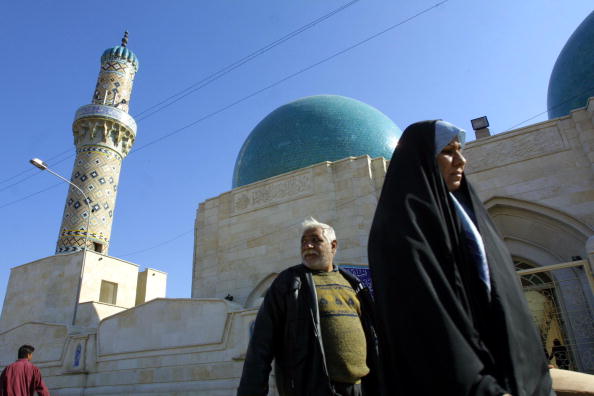-
Tips for becoming a good boxer - November 6, 2020
-
7 expert tips for making your hens night a memorable one - November 6, 2020
-
5 reasons to host your Christmas party on a cruise boat - November 6, 2020
-
What to do when you’re charged with a crime - November 6, 2020
-
Should you get one or multiple dogs? Here’s all you need to know - November 3, 2020
-
A Guide: How to Build Your Very Own Magic Mirror - February 14, 2019
-
Our Top Inspirational Baseball Stars - November 24, 2018
-
Five Tech Tools That Will Help You Turn Your Blog into a Business - November 24, 2018
-
How to Indulge on Vacation without Expanding Your Waist - November 9, 2018
-
5 Strategies for Businesses to Appeal to Today’s Increasingly Mobile-Crazed Customers - November 9, 2018
Kuwaiti Sunnis, Shias unite for Friday prayer after deadly attack
The attack, claimed by Islamic State (IS) and carried out by a Saudi national on 26 June, targeted a Shia mosque, leaving at least 27 dead and more than 200 injured.
Advertisement
Sunni activists took to social media urging Sunnis to pray at Shiite mosques, while Kuwaiti celebrities appeared in television commercials speaking about unity.
The victims of the attack were declared martyrs of the nation. The real worry here is multi-faceted: He was a Saudi Arabian national, was not on anybody’s watch list as a potential terrorist, moved around the Gulf region at will, entered the mosque easily, and deliberately assaulted both the Shiite Kuwaitis in the mosque and the modern legacy of Shiite-Sunni coexistence that has always been particularly evident in Kuwait.
Shias make up about 30% to 40% of Kuwait’s population, have lived in harmony with their Sunni compatriots and occupied key posts in the oil sector.
Among those attending prayers at the grand mosque on Friday was Kuwait’s Emir Sheikh Sabah al-Ahmad al-Sabah. The emir, crown prince, ministers and MPs attended the prayers. Worshippers were thoroughly searched before being allowed inside.
The country has been hit by protests for political reforms since 2011.
Following the attack on the Imam Al Sadeq mosque, billboards across Kuwait went up showing an image of the Kuwaiti flag wrapped around a hand, with the slogan: “We stand as one”.
During a parliamentary debate this week some Shiite members of parliament said the government needed to do more to end discrimination and combat extremism. “This is the Kuwaiti response to you”, MP Khalil Abul told AFP as he left the mosque.
Political analyst Abdul Wahid Khalfan said strong measures were needed.
“There are people in Kuwait who fund terrorism and who are fighting with Daesh”. The combination of more military security measures alongside a squeezed political system that leaves little room for any voices other than those in or near the ruling elite, while economic stress continues to pervade most Egyptian households, bodes badly for Egypt, as it does for any Arab or Western state that applies such a strategy to quell terror attacks.
Since the bombing, around 90 people have been arrested for either their role in the attack or ties to radical Islamist organizations such as ISIS.
Five have been referred to prosecutors to face trial in a special court. Shiite cleric Abdullah al-Nejada said: “this is a proof that Sunnis and Shiites are the same and that they will not succeed in dividing this country”.
Parliament on Wednesday approved a Dollars 400 million emergency funding for spending required by the Interior Ministry.
Despite this, many Kuwaitis remain concerned about the new attacks.
Advertisement
“We can’t really say that this was the last terror attack in Kuwait”, liberal MP Rakan Al Nasef warned during the debate.





























